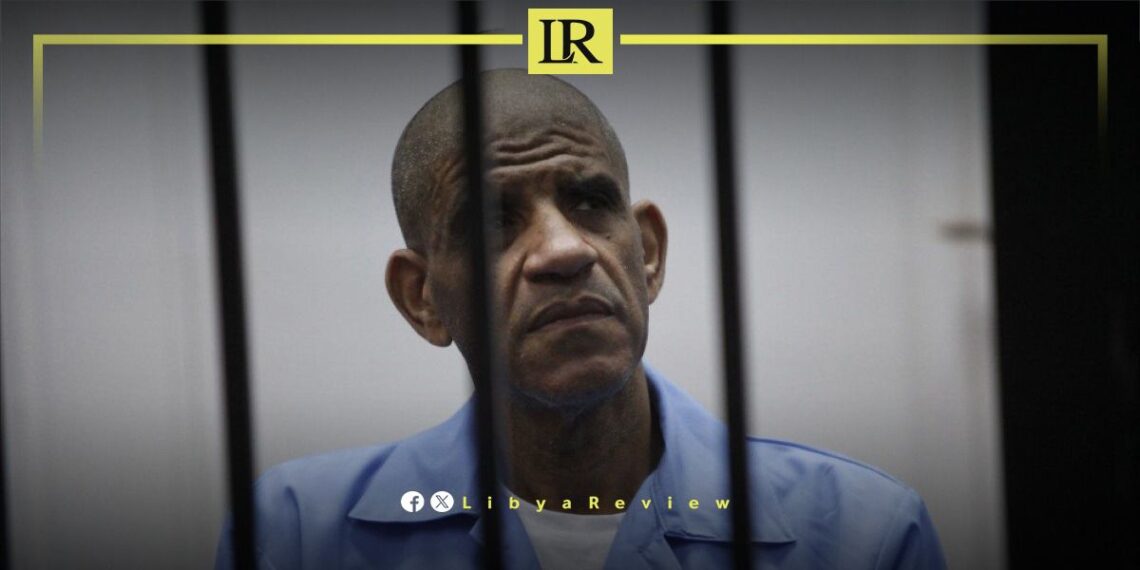The Tripoli Appeals Court has postponed the trial of Abdullah Al-Senussi, the intelligence chief during Muammar Gaddafi’s regime, to July 22.
According to al-Senussi’s lawyer, Ahmed Nashad, the court was unable to complete the interrogation of some other defendants in the case, notably Gaddafi’s Prime Minister, Baghdadi Al-Mahmoudi.
“The inability to communicate with al-Mahmoudi, who is outside Libya, has led to the postponement of the trial to complete the necessary investigations,” Nashad explained.
The lawyer added, “This postponement reflects the court’s commitment to ensuring full justice by hearing all parties and testimonies involved in the case.”
Al-Senussi faces charges related to crimes committed during Muammar Gaddafi’s rule, and his trial is part of ongoing efforts to hold accountable those responsible for that era.
Al-Senussi, nicknamed “the Butcher,” was arrested by Mauritanian authorities at Nouakchott International Airport in 2012 after arriving from an African country.
Libya’s economy, heavily reliant on oil, has suffered due to the ongoing conflict. The instability has led to fluctuations in oil production and prices, impacting the global oil market and Libya’s economy.
The conflict has led to a significant humanitarian crisis in Libya, with thousands of people killed, and many more displaced. Migrants and refugees using Libya as a transit point to Europe have also faced dire conditions.
The planned elections for December 2021 were delayed due to disagreements over election laws and the eligibility of certain candidates. This delay has raised concerns about the feasibility of a peaceful political transition.
Despite the ceasefire, security remains a significant concern with sporadic fighting and the presence of mercenaries and foreign fighters. The unification of the military and the removal of foreign forces are crucial challenges.


